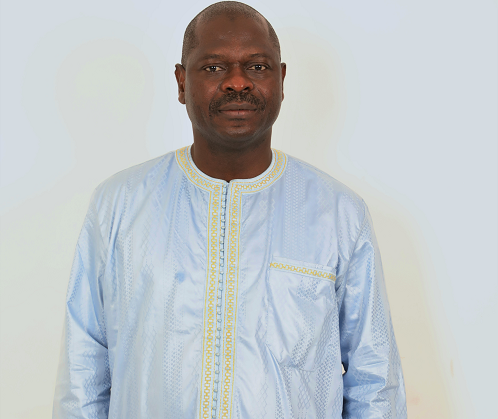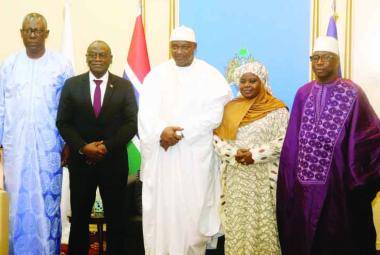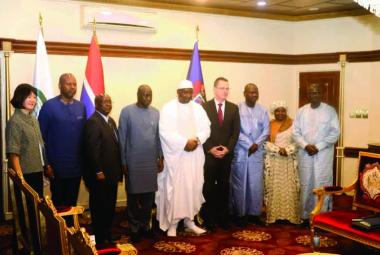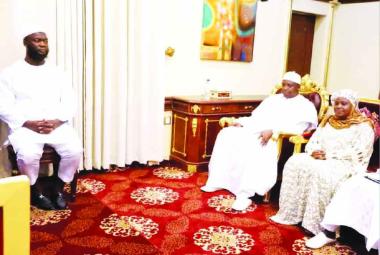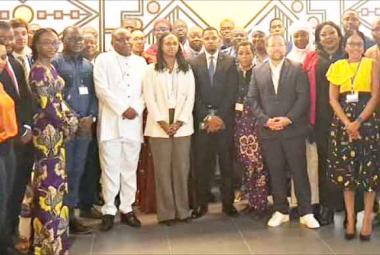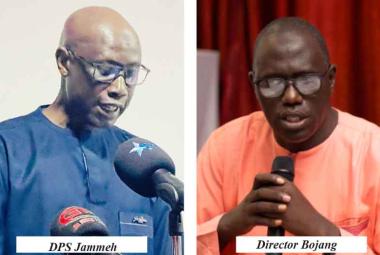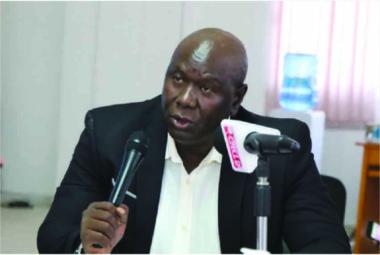By Ebrima S Jallow
The Minister Finance and Economic Affairs, Mr Seedy Keita during the 2023 Fourth Ordinary session of the Parliamentary sittings, on Friday 8th December 2023, appeared before the National Assembly Members to deliver the speech on the 2024 Appropriation Bill, otherwise known as Budget Speech.
In his address, the Minister stated that The Gambia’s economy is expected to continue its recovery path at a slower pace; that real GDP growth is projected at 5.6 percent in 2023, compared to 4.9 percent in 2022 and 5.3 percent in 2021 when recovery from the pandemic was underway. This relatively weak performance, he said, results from the spillover effects of the Russia-Ukraine conflict.
For the agriculture sector, he said it is expected to continue on a steady path to recovery after the downturn in 2022. “Its growth rate is projected to increase to 8.3 percent in 2023, compared to the 3.6 percent growth rate registered in 2022”. He explained that growth in the agriculture sector was driven mainly by contributions from the fishing and crop production sub-sectors with 7.3 and 10.1 percent, while contributions from forestry and logging, he said, are estimated to decline.
The Minister noted that performance in industry is also expected to recover on the back of strong performance in the electricity and construction subsectors. “Growth in industry (including construction) is projected at 7.4 percent in 2023, signaling recovery from the combined effects of the pandemic and the Russia-Ukraine war. The Mining and Quarrying subsector is also expected to remain on a decent path fuelled by improved supply chain conditions”.
However, he said the services sector is expected to register a subdued recovery from the combined effects of COVID-19 and the war in Ukraine. “Growth is projected at 3.5 percent in 2023, with the tourism and wholesale and retail trade sub-sectors being the main drivers of the recovery.Tourism is expected to recover from the COVID disruption by 2026”.
In the fiscal sector, he said revenue and grants increased from D15 billion in the first nine months of 2022 to D20 billion in the same period in 2023. This, he explained, is largely due to a rise in both tax and non-taxrevenues. “The increase in tax revenue collection was mainly due to a significant reduction in fuel subsidies; a rebound in tourism, cross-border trade, and increased enforcementexercises; and the successful implementation of ASYCUDA World and an enhanced version of GAMTAXNET in all tax offices. Dividend payments from the Central Bank of The Gambia also contributed to the significant increase in non-tax revenue.Total Expenditure and Net Lending increased from D20.5 billion in the first nine months of 2022 to D22.9 billion during the same period in 2023. This was due to a 19 percent and a 7 percent increase in capital and current expenditures respectively”.
The Finance Minister reminded that Government has recently finalized the formulation of a Green Recovery-Focused National Development Plan (RF-NDP) for the period 2023-2027, with a results framework for monitoring and evaluation purposes. “The main goal of the new development plan is to build on the gains registered during the 2018-2022 NDP and to address the country’s recovery needs in the short and medium term, underpinned by the concepts of green recovery and resilience as guiding themes. It aligns with the UN Agenda2030 and the African Union Agenda 2063”.

